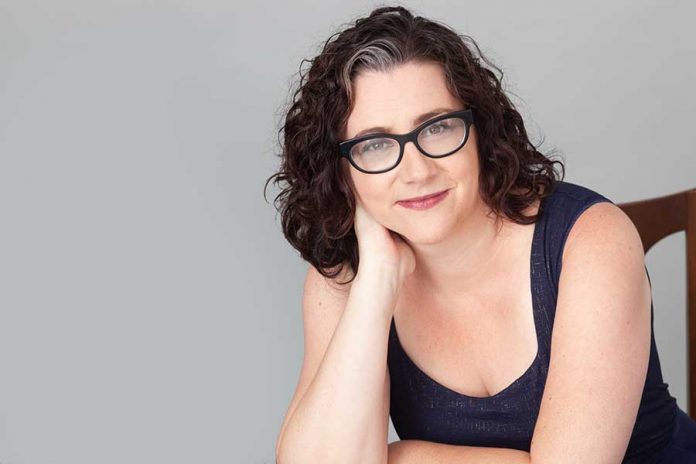Theatre Exile is presenting a new thought-provoking dark comedy in “Babel,” Feb. 19-March 8. Written by bisexual Philadelphia playwright Jacqueline Goldfinger, the story is set in the future where prospective lesbian parents grapple with the idea of using technology to decide what traits their child will have.
PGN talked to Goldfinger about the ideas that inspired her new play and the questions this story asks and answers about the world we live in and hope to create.

What inspired you to write a story like “Babel”?
I was pregnant. I have 7-year-old twins. When we got pregnant, there were some health issues. Luckily everything was fine and worked out, but I had to go in for a ton of testing. I learned so much about where we are going in terms of the future IVF technologies and how much we are going to know about babies in utero, and the experiments going on to learn even more about babies in utero and what their genes are. I thought it would make a fascinating play. But then I gave birth to twins. I put the idea for the play on hold for five years while I raised twins. Two years ago, when I got them in school, I revisited my notes and looked into the technology that’s happening. It really can be construed as a new eugenics movement, depending on how you see the technology. That’s what inspired it, and then, as I was doing my research, friends and family came forward who had done IVF and nontraditional fertilization techniques to get pregnant, and their stories were just phenomenal. My out lesbian friends were really glad that they could do IVF because, with all the unfortunate controversy surrounding queer adoption and queer families, they felt like IVF was the one way that they could make sure that they had the family they wanted. It really comes out of personal experiences and experiences our friends have.
This idea has been a regular theme is science fiction for a while. What does “Babel” bring to the subject that people haven’t seen before?
The technology is evolving at such a rapid pace in terms of the testing and what you can know in utero about your baby. These are very important moral and ethical questions for the next 10 years, and it’s better to think about them now so that we’re better prepared. Also, this is a slightly different dystopia. This is not your traditional white supremacist, “we hate all gays” future. This is a future that is actually quite politically progressive and socially progressive. Of course, we’re always going to have things like racism and sexism among us to some degree, unfortunately and probably. It’s a future in which progressive ideas have won out socially, or at least people think. And then what happens is our resources start dwindling, water starts dwindling, and we have to think about what we really want to do to keep humanity surviving and sustain the future. It’s looking at it through a more progressive lens than most dystopian stories.
Why was it important for you to have a lesbian couple at the center of the story?
We know quite a few lesbian families. Me being bisexual, I’ve had a lot of experiences in the lesbian community, and I feel like that is a story I can tell well. I have friends who could consult along the way. Also, just because I love putting women on stage. I love putting women’s stories on stage. The fact is, at the end of the day, it’s women’s bodies that are going to birth the babies. So we are the ones with the greater decisions to make because everything happens in our bodies. So by having the cast have three women and one man, there’s a lesbian couple and a straight couple, and by having that combination, it allows to have conflict and joy and conversation about a lot of different ways that women’s bodies are perceived by other people regarding reproduction.
Does “Babel” have anything to say about the current political or social climate?
It’s more of a corporate angle because, in the play, a lot of the testing technology is connected to different corporations. In addition to the important questions we are asking about tomorrow, we’re asking questions about today and how much control should corporations have over our information and health care needs. Where do they get to decide things because they have money, and where do we get to decide things? Who do we trust in terms of corporations? And can you trust anyone? There are a number of conversations happening at different levels.
What do you hope audiences take away from this show?
What I’m hoping for is the best of all worlds. What I’m known for in the community is bringing forward plays that have hard moral questions but are also full of laughter and joy and life. So you walk out, and you’ve seen a complete story, and you feel fulfilled, but you also have something to talk about at dinner if you choose to do that.
Theatre Exile presents “Babel” Feb. 13-March 6, 1340 S. 13th St. For more information or tickets, call 215-218-4022 or visit https://theatreexile.org/.
